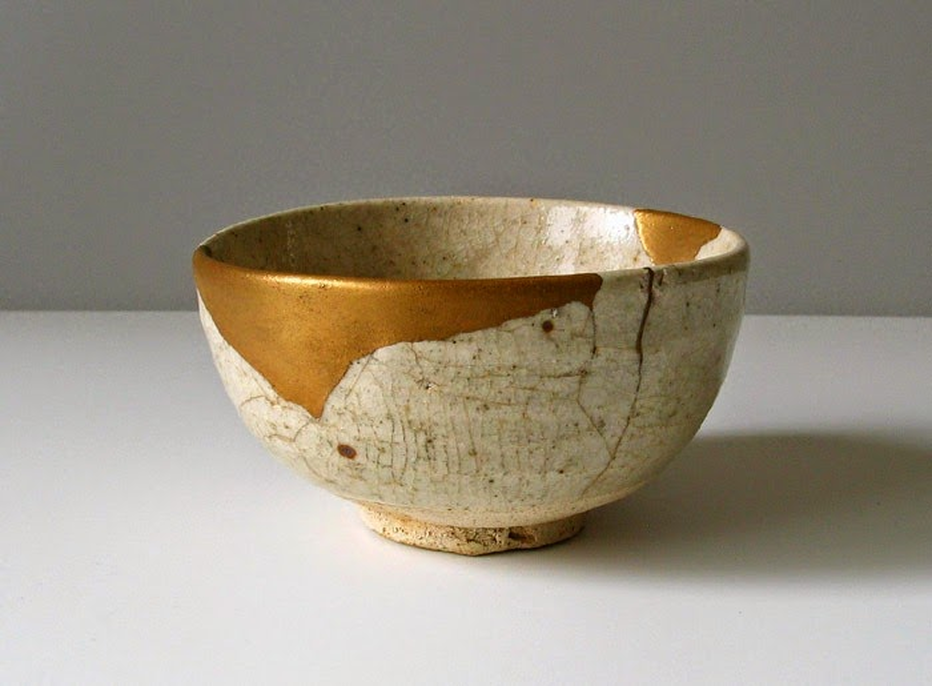|
Resiliency means not dwelling on failures, acknowledging situations for what they are, learning from mistakes, and moving forward.  Resiliency means that you learn how to protect yourself and adaptively change in the face of difficult and stressful experiences. By being resilient you are able to recover more quickly from difficulties and can bounce back. Resiliency means not dwelling on failures, acknowledging situations for what they are, learning from mistakes, and moving forward. Sometimes experiencing hardships means that you develop more resiliency and you become stronger than you thought possible. It is important to remember that it is possible to develop resiliency no matter what life experiences you have had. Here are some things to consider in order to build resiliency:
In pottery and some cultures, broken objects are often repaired with gold or silver. The flaw is seen as a unique piece of the object’s history that adds to its beauty. This type of resiliency is called kintsugi or kintsukuroi in Japanese.
|
|
OverviewNWO’s source for all things relationships, mental health, wellness, lifestyle, and pandemic support. Kelly Magazine is a mental health outreach initiative created by Kelly Mental Health and supported by Kelly Mental Health Foundation, a non-profit organization dedicated to improving the community in the area of mental health.
|
Magazine |
Follow Us |
In support of @kellymentalhealthfndn |
© COPYRIGHT. ALL RIGHTS RESERVED. WEB DESIGN BY KMH





